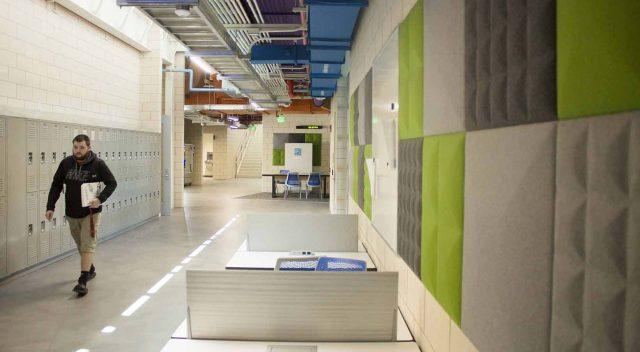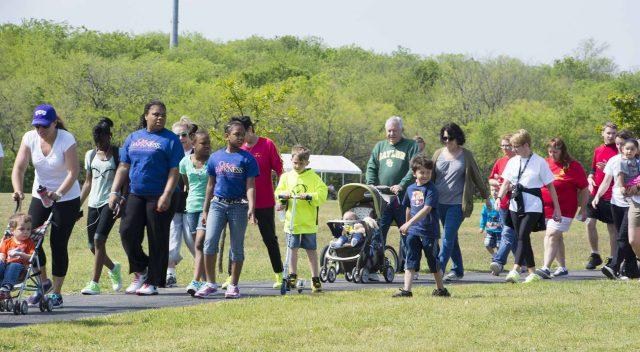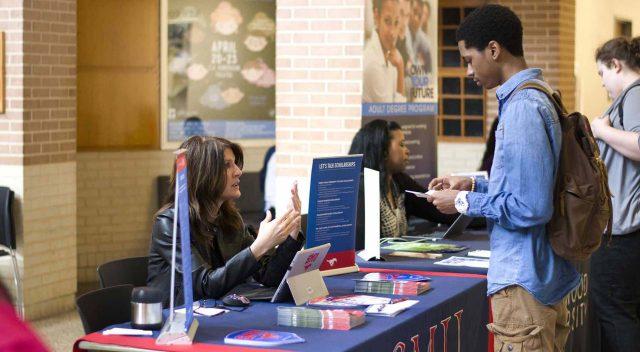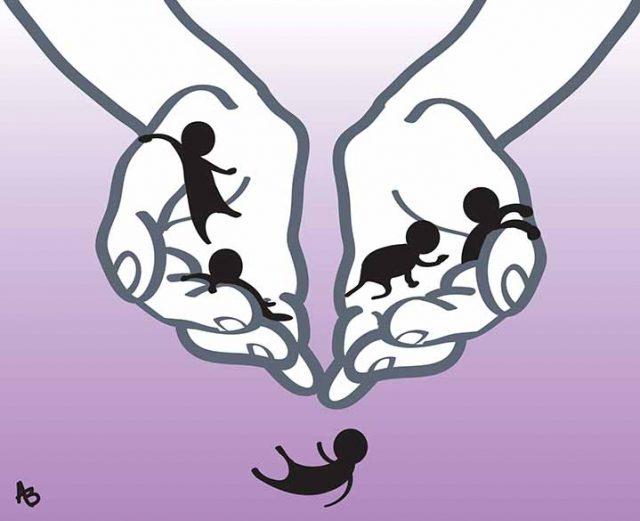By Joshua West/ reporter
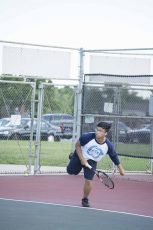
Photos by Katelyn Townsend/The Collegian
Ariel Palos and Jake Raymond held off a strong comeback to win the intramural doubles tennis tournament on NE Campus April 21.
Palos and Raymond defeated Hoang Ta and Sameer Siddiqi in the final, 7-5, to take the title.
In the peak of the final, Palos jumped and hit the ball with a smash.
“Ariel, are you trying to kill him on the serve?” said NE gym supervisor John Clark.
Both teams pushed back and forth. Siddiqi said he had leg problems but didn’t let that get in the way of the match.
“I have compartment syndrome. It is where my blood doesn’t flow throughout all of my leg,” Siddiqi said. “It’s not too bad, though, but it is not an excuse to lose.”
Ta kept a humble attitude as the final score went against him and Siddiqi.
“It’s not just a sport you can just pick up,” Ta said. “It tested every single skill I had.”
Ta said he has been playing tennis on and off for six years, but this was his first semester to be taught by a coach.
For some, the event was their first chance to play with their partner. Ta and Siddiqi had played together once before.
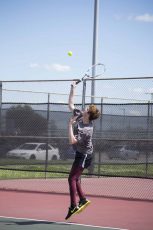
“He’s my partner in crime,” Ta said of Siddiqi. “The matches we played were great. I was able to communicate with my partner, and the first point was off one of my favorite serves: the topspin serve.”
Teamwork and perseverance held Ta and Siddiqi together. Both are good friends and vice presidents of the Ping Pong Club.
Siddiqi said it was do or die during the comeback.
“I started to have more confidence as Hoang gave me a pep talk,” Siddiqi said. “We were down 5-1. If we lost once more, that’d be all or nothing.”
Palos said she started struggling during the comeback.
“My partner started telling me I’m doing horrible, and I believe that is what really helped us win,” Palos said.
At the end, both teams remained humble, and everyone said they had a great time and had given their all.
“Singles give freedom, but you are alone and responsible for all mistakes,” Ta said. “Doubles are all about teamwork and communication, but once you open up and see other people’s perspectives to get better, communication and teamwork is key.”
Kinesiology associate professor Tim Sebesta, who put on the event that included four doubles teams, felt the need to encourage and help students to get out and have fun, giving students the ability to get together and be competitive.
Some of the players had never played together, and Sebesta said that is what makes the tournament so unpredictable.
“Intramural tournament students get to play each other from the clubs, class and whoever enjoys tennis,” Sebesta said.


















